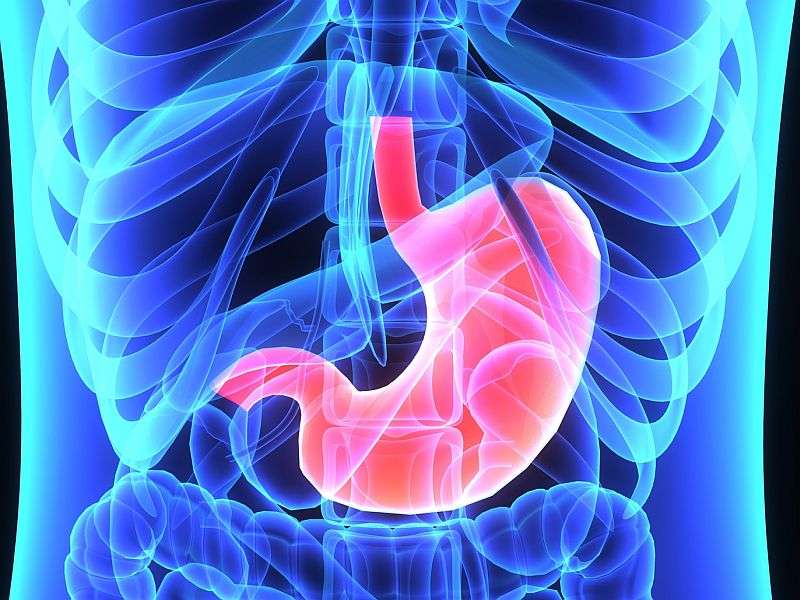Reconstruction method in gastric CA surgery affects bone density

(HealthDay)—The reconstruction method may affect postoperative bone mineral density (BMD) loss in gastric cancer, according to a study published online July 31 in the Journal of Gastroenterology and Hepatology.
Taisuke Imamura, M.D., from the Kyoto Prefectural University of Medicine in Japan, and colleagues assessed 148 consecutive patients who underwent distal gastrectomy with Billroth-I (B-I) or Roux-en-Y (R-Y) reconstruction for stage I gastric cancer (2008 to 2012). BMD data were was retrospectively assessed using computed tomography attenuation values of the first lumbar vertebra after surgery.
In multivariate analysis, the researchers found that R-Y reconstruction was an independent risk factor for BMD loss after distal gastrectomy (P < 0.0001; odds ratio, 5.60). To overcome bias, propensity score-matched analysis was used, and B-I reconstruction was found to have superiority over R-Y reconstruction for preventing BMD loss in the first three years after distal gastrectomy. The cumulative hazard ratio of osteoporosis after gastrectomy was significantly higher in the R-Y group than in the B-I group (P = 0.0427).
"B-I reconstruction might be a preferable method for preventing BMD loss after gastrectomy in gastric cancer patients," the authors write.
More information:
Abstract
Full Text (subscription or payment may be required)
Copyright © 2017 HealthDay. All rights reserved.


















